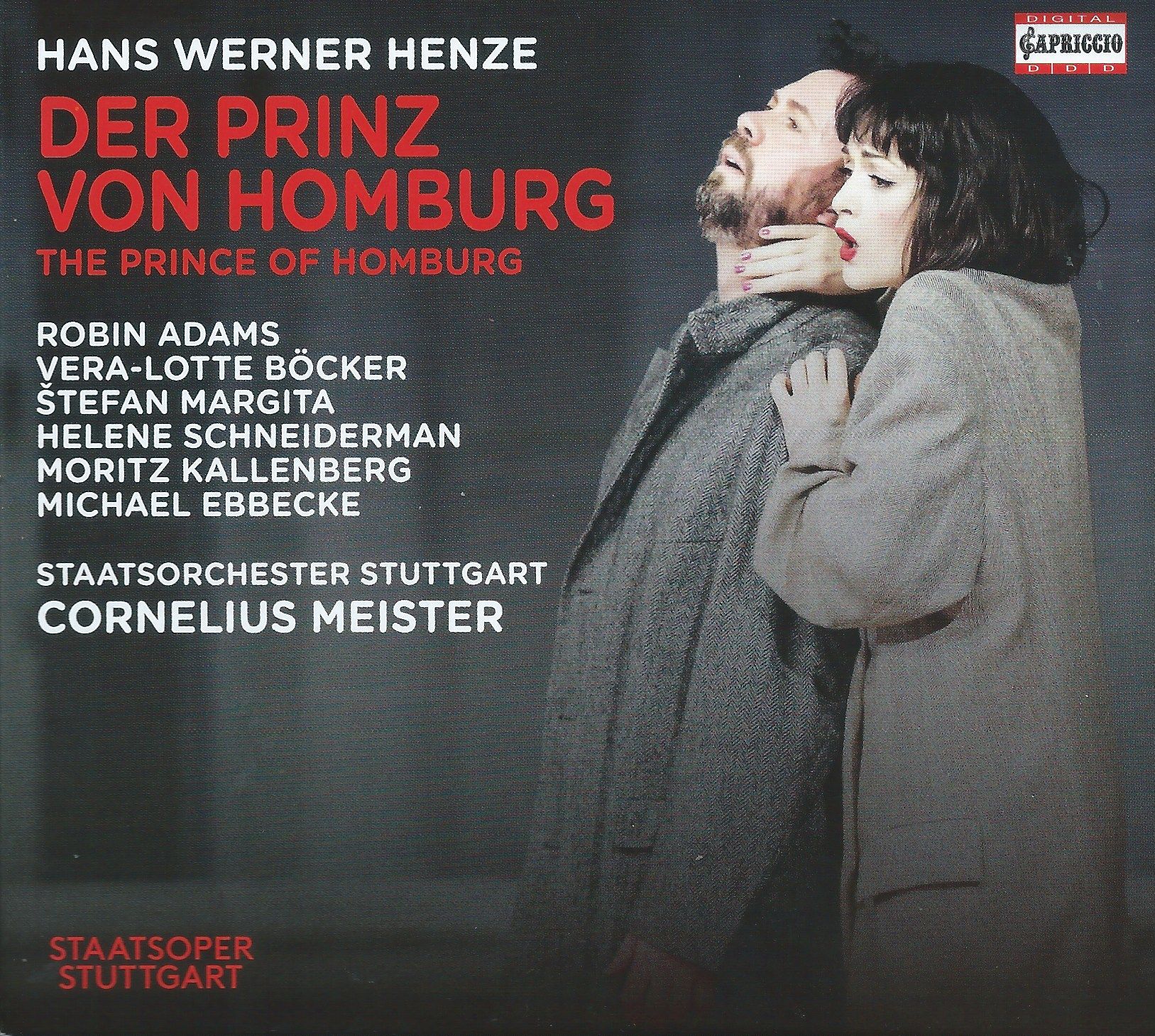Finding a way into modern music: Henze's "Tristan" and "Der Prinz von Homburg"
In a World of dumbing down, of easy-on-the-ear accessibility, Henze offers a middle way, a way into complexity without overwhelm

Contemporary music can seem forbidding. Back in the late twentieth century, the names of Pierre Boulez and Karlheinz Stockhausen were worshipped and derided in equal measure: high complexity from both, with a side-order of off-the-scale, galactic ambition from Stockhausen (who famously claimed to have been from a planet orbiting the star Sirius and who wrote a cycle of operas, Licht, that dwarfs Wagner's Ring cycle).
There was a third major name, however. Hans Werner Henze (1926-2012) is the most approachable of the three in musical terms (and, on the one occasion I met him personal terms too). It could be because of a number of things. Although he was born in Güttersloh and died in Dresden, he left Germany for Italy in 1953, moving to the island of Ischia (where Walton also lived). Many commentators have suggested the Italian sunshine translates into a warmth in his music not experienced in that of his more objectively-oriented comtemporaries, and tehre is more than a grain of truth to this. Like Stockhausen, Henze was acutely aware of the historical burden of the past, and Henze showed this nowhere more clearly than in the piece Tristan for piano, tape and orchestra: he quotes Wagner (fairly obviously, given the title) but Brahms and Chopin, also. The soloist in the YouTube performance below is actually the same pianist as gave the 1974 premiere, Homero Francesch. There, he was joined by the LSO and Colin Davis; here, it is the Cologne Radio Symphony Orchestra under the composer, no less:
Yes, there is harshness to some of the writing, but there is so much beauty as well, not least in the piano opening. The ghost of Wagner is undeniable; as is the presence of Brahms. I won't spoil the Brahms surprise for you, but if you might want to fast-forward, play the above YouTube video of Tristan from 16'55 and you'll see what I mean; although it makes an even greater impact if you listen to the whole work!
So it is we come to a very recent release, Henze's 1958 opera Der Prinz von Homberg, to a libretto by Ingeborg Brachmann on the Capriccio label.

In a YouTube video showing interviews with the cast (mainly in German but some in English), Robin Adams, who sings the title role, describes the Prince as one of the most difficult baritone roles in the repertoire, "approximately the same as singing Wozzeck twice" (my translation).
What is striking is the beauty of the music. At one point, the cast in the above interview are asked who is the music for? And the answer comes through clearly - for everybody.
The opera itself concerns the dream world of the Prince himself, distanced from his surrounding reality and revealed in the most painterly ways by Henze, a master of dramatic pacing.
Although not from the Capriccio performance, here's a taste of the opera's gorgeousness. Listen to the lush strings, the acidic woodwind and the sheer lyricism of the vocal part in this, a live German Radio broadcast from Cologne with baritone Christian Miedl singing the four-minute "Welch einen Sonderbaren" from Der Prinz's first act:
In a World of dumbing down, of easy-on-the-ear accessibility, Henze offers a middle way, a way into complexity without the overwhelm that can accompany it.
The Stuttgart Capriccio recording was relased on June 5, 2020. A shame the Arthaus DVD is currently unavailable (conducted by Wolfgang Sawallisch, no less), I've put in the Amazon link for that below, should a second-hand copy become available, plus links to the Capriccio Prinz and the DG Tristan. There's also a Spotify sampler should you wish to explore ...
